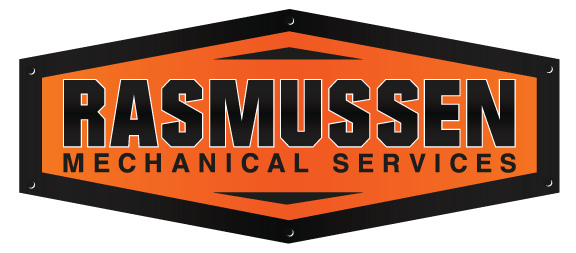It’s finally summer, which means it’s a busy time for families and individuals to be traveling, but also a hectic time for most hotels. With the number of guests occupying your facility, it can be hard to instill energy-efficient practices, while controlling every aspect of your expenses. At the end of the day, you want to ensure your facility has the budget and structure to give your guests’ a comfortable stay. Keep our hotel maintenance tips in mind to stay energy-efficient this vacation season.
To help guarantee your lodging facility runs more efficiently and your guests’ needs are met during their stay, we’ve developed a few tips to help you work towards a more efficient lodging facility.
Want to cut down #energy costs in your lodging facility this summer? @RasMech has the top 10 tips you need to ensure that your building is energy-efficient while saving you money. Check it out! Click To TweetPreserve Your Building’s Structure
Depending on where you live, most summers tend to be hot, humid, or even both. To avoid extreme heat and humidity taking over your hotel or lodge, it’s crucial your building’s structure is adequately insulated for cold air to flow throughout the building. If you aren’t sure where to begin, start with a couple of these hotel maintenance tips:
- Tip 1: Air sealing your facility – to secure the amount of airflow, make sure foaming, caulking, duct sealing, and weatherstripping are correctly implemented to reduce air leaks in and out of the building. This can reduce air leaks in the framing, chimneys, pipes, wiring, doors, and other openings.
- Tip 2: To promote the adoption of energy-efficiency in your hotel or lodge, replace both interior and exterior incandescent/fluorescent lights with LED bulbs. When switched, LED bulbs tend to use about ⅓-⅕ of electrical power than regular light bulbs, and last 8-15 times longer.
Keep Up with HVAC Maintenance in Main Areas
During the warmer months, an HVAC system is one of the most critical pieces of equipment your facility will rely on. With its heating, ventilation, and cooling capabilities, it’s your building’s primary tool to circulate cool air during the summer.
To keep cool air consistent throughout the building, start by:
- Tip 3: Checking air ducts for any air leaks. If you aren’t able to complete this task, call a trusted consultant or expert.
- Tip 4: Installing variable frequency or speed drive for your HVAC system. These devices can detect the space’s air requirements and increase or decrease the fan’s speed as needed.
- Tip 5: Checking outdoor components such as the valves, chimney, air handler, and other parts to verify there’s no excess air coming through the air-conditioned space.
- Tip 6: Regularly replacing filters to decrease energy usage and increase indoor air quality. This may require you to replace filters every month during the more extreme weather seasons (winter and summer). At a minimum, change your filters every three months. If your filter is dirty, the airflow will slow down, making more work for your system, resulting in wasted energy.
- Tip 7: When nighttime hits, set a thermostat setback when the main areas are vacant.
Keep Up with HVAC Maintenance in Guest Rooms
When guests come to stay in your facility, they want to feel comfortable and at home, without actually being at home. That means your guests will take advantage of the free amenities like the A/C since they aren’t the ones paying the bills. Here are some hotel maintenance tips to apply when trying to keep costs down:
- Tip 8: After your guests have checked out, assign housekeeping to turn the thermostat up or down to keep the thermostat running at an efficient temperature.
- Tip 9: Install smart thermostats that are equipped with occupancy sensors for efficient temperature control when a room is occupied or unoccupied. Your guests will be able to stay comfortable while saving energy and costs.
- Tip 10: If you have a packaged terminal air conditioner, you may want to consider getting it replaced. Replacing it with a newer model with heat pump technology can produce more efficient air quality.
When you have a properly managed hotel or lodge facility with a structured plan, not only can you improve energy efficiency, but you can reduce energy costs and ensure your guests are comfortable. Most lodging facilities see a 30-50% improvement in energy usage when energy-efficient tactics are implemented.
At Rasmussen, we provide a variety of building services to help you work towards a more proficient lodging facility. Some of our services include:
- Rotating Equipment Vibration Analysis, Alignment and Balance, Infrared Thermography, Oil Sampling Ultrasonic Leak Detection, and Steam Trap Surveys
- Air Compressor Oil and Filter Changes, Dryer Repair/Replacement, and Bearing Changes
- Preventative Maintenance Services for HVAC Equipment, Process Equipment, Ice Machines, Compressed Air Systems, and more.
[If you are interested in viewing a full list of our hotel & lodging services, check it out here.]
With the right experts at hand, we’ll guarantee your hotel or lodge will operate more efficiently. If you’re ready to see how, talk to one of our experts, today!
In case you’re after the TL;DR, check out a recap of the tips below:
- Air Seal your Facility – This can reduce air leaks in the framing, chimneys, pipes, wiring, doors, and other openings.
- Replace Interior and Exterior light with LED Bulbs – When switched, LED bulbs tend to use about ⅓-⅕ of electrical power than regular light bulbs, and last 8-15 times longer.
- Check Air Ducts for Any Air Leaks – If you aren’t able to complete this task, call a trusted consultant or expert.
- Install Speed Drive for Your HVAC – These devices can detect the space’s air requirements and increase or decrease the fan’s speed as needed.
- Check Your Outdoor Components – Verify there’s no excess air coming through the air-conditioned space.
- Replacing Filters to Increase Energy Usage and Decrease Indoor Air Quality – If your filter is dirty, the airflow will slow down, making more work for your system, resulting in wasted energy.
- Set a Thermostat Setback When Main Areas are Vacant
- Assign Housekeeping to Rest Thermostat – Keep the thermostat running at an efficient temperature.
- Install Smart Thermostats Equipped with Occupancy Sensors – Your guest will be able to stay comfortable while saving energy and costs.
- Replace Your Packaged Terminal Air Conditioner – Replacing it with a newer model with heat pump technology can produce more efficient air quality.



